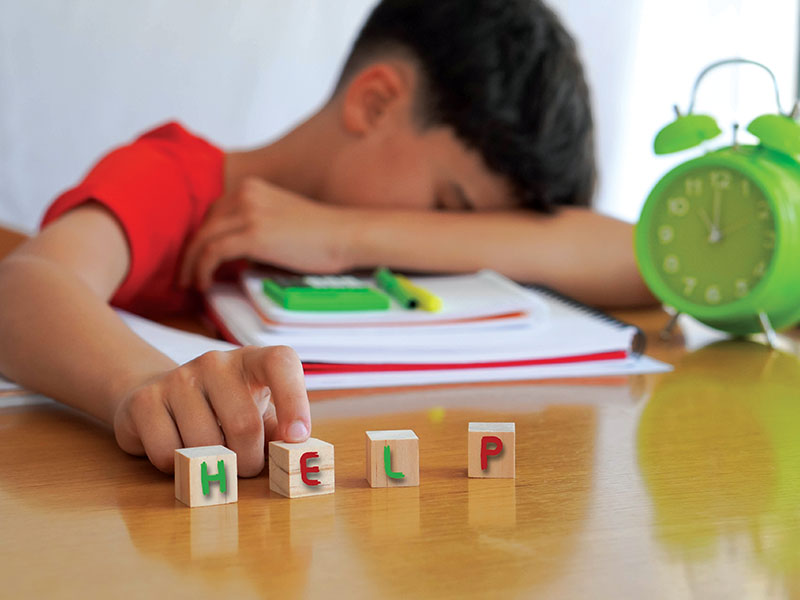With professional advice, information and a support system rooted in acceptance, parents can navigate the challenges of enabling neurodiverse children to realise their full potential


Reena Chopra
Defenders reduce auditory overload
Search online for child-friendly versions using keywords like “noise reduction headphones for children in India.”
Tactile & movement
• Trigger: Crowds, tight clothes, lack of movement/space.
• Support strategy: Fidget spinners, sensory balls, body socks, and chewable pendants are great options. Search on Amazon/online therapy stores for “sensory toys for autism/ADHD in India”.
Visual overload
• Trigger: Flashing lights, chaotic classrooms.
• Support strategy: Create a visual schedule using printed cards or apps like Choiceworks to build predictability into the day. Set up a small, cozy space at home with dim lighting, soft textures, a weighted blanket or lap pad, and calming music. Search online for tips on creating “DIY sensory calming corner for kids”.
See a specialist
Scrolling through social media parenting tips may be tempting, but coping with neurodiverse children needs professional advice, not one-size-fits-all information. Please consult the following:
• Developmental pediatricians for diagnosis and assessments
• Child psychologists to develop emotional resilience, address anxiety and behavioral issues
• Occupational therapists to improve sensory integration, fine/gross motor skills
• Speech therapists to improve communication and comprehension
Partner with schools, don’t fight them
Schools play a critical role in supporting neurodiverse children to realise their potential. As a parent, aim to collaborate, not confront school teachers. Request them to provide flexible seating or movement breaks, visual aids and predictable routines, sensory-friendly corners or quiet zones and IEPs (Individualized Education Plans). Schools that follow inclusive education practices are ideal for neurodiverse children.
Normalize using support tools in public spaces
Whether it’s using ear defenders in a shopping mall or chewing on a sensory necklace in a classroom, explain to your child that these are coping strategies and not something to hide. Normalize the use of sensory tools in the same way we normalize wearing glasses for weak eyesight. Also, when visiting public spaces, plan outings during quieter hours and carry a mini “sensory first-aid kit” with fidget toys, headphones, and snacks. Apps such as Google Maps Live Busyness help avoid overcrowded areas.
Find a safe support circle
You don’t have to do this alone. Join communities of like-minded parents who are on similar journeys. Search online for “support groups for parents of neurodiverse children India” or “autism parenting forums India”. These communities offer emotional support, real-life resources, recommendations of therapists, tools, and schools and reassurance that you are not alone.
Acceptance is the compass
When navigating a neurotypical world with a neurodiverse child, acceptance is the compass. From therapy to tools, schools to support groups, it all begins with accepting that your child is uniquely wired and beautifully capable. Don’t rely on online content or social opinions. Your child needs a science-backed, emotionally grounded pathway to realise her full potential.


















Add comment